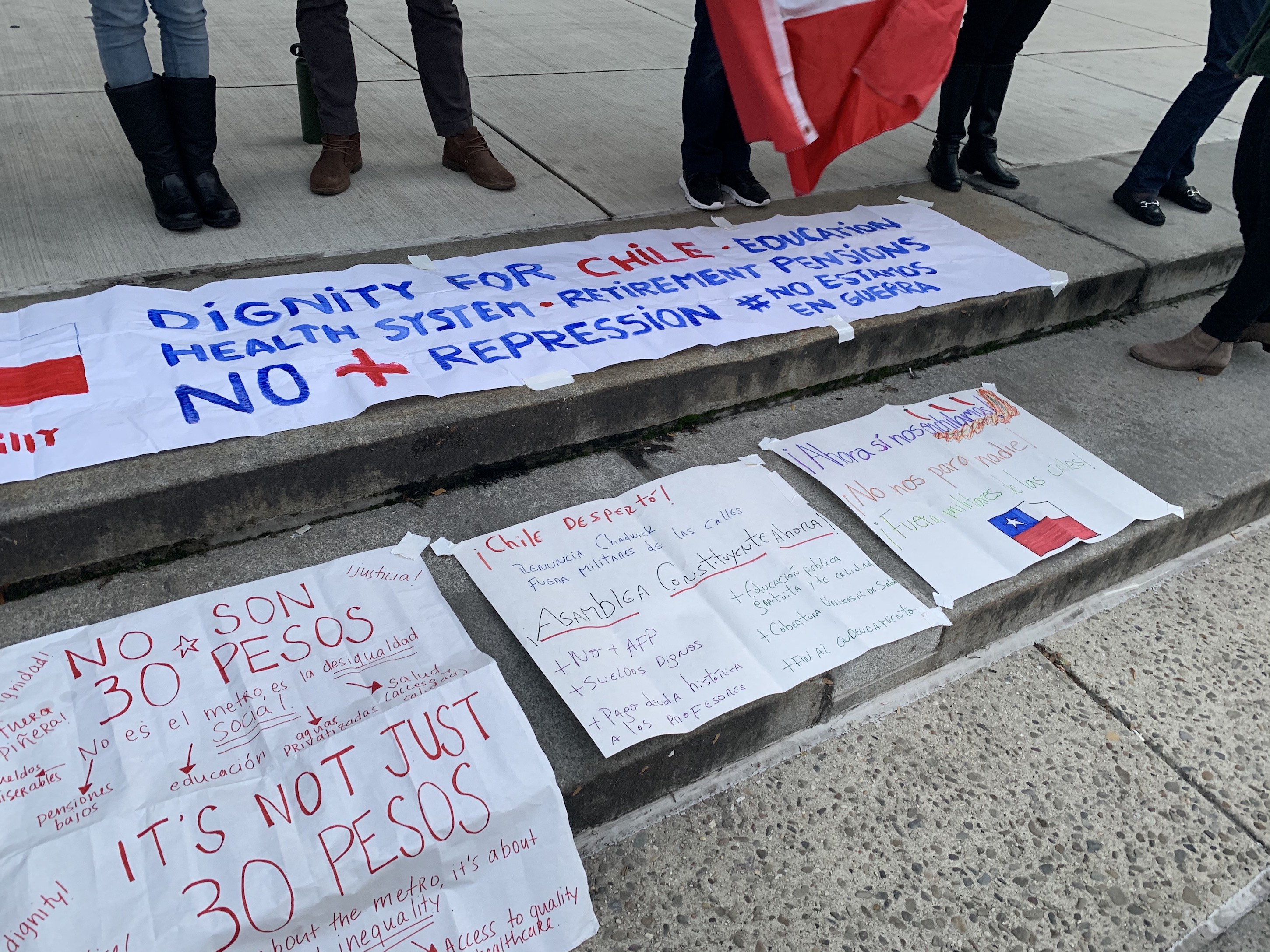
Thousands of miles away, in a country known for its Moai statues and red wine, civil unrest over the rise in subway prices has broken out. Just a mere four percent increase in the price of public transportation has sent people out to the streets. Over twenty people have been killed and many more have been injured in Chile.
Public transportation shares its infinite value across the world, something Philadelphians who jump on the Market-Frankfort line to get just about anywhere can attest to. To support their friends and family in Chile, a group of friends stood with the protesters back home by coming out to a Town Hall in Center City with posters on Sunday evening. Speaking in Spanish, but also translating their speeches in English, this congregation was not part of any group with an agenda. They were simply some friends who were eager to show their solidarity and bring attention to what was happening in their country.
When asked about the importance of public transportation, one of the organizers of the protest, Martin Garcia, explained that public transportation isn’t just a necessity, but it is also the connection to their “healthcare, education, job, and home.”
Elaborating on the importance of the price spike, Garcia exclaimed that it is, “just the tip of the iceberg in Chile and everything is starting to increase, which means that there’s a lot of people and police on the streets.”
The people of Chile demand fair wages, universal healthcare, and quality public education for all and will continue to put pressure on the government until changes are made. This is especially true for the lower classes, who depend on public transportation the most. They are the ones by far affected the most by this price increase.
The goal of the local protest was to bring international attention to the carnage in Chile and also to urge action for a new government. One of the posters read, “No es el metro es la desigualdad,” which translates to, “It’s not the subway system; it’s the growing inequality.”
Most of the unrest in Chile has been focused on President Sebastián Piñera, who claims to be making efforts to aid the growing middle class. The social divide in this previously dictator-led country comes from the spatial divide of economic classes in the 1990s.
The poorer someone was, the further from the center city in Chile they had to move to escape strict government housing regulations. But now, despite promised changes, this physical divide still exists in the city of Santiago. Since the price increase hits the most frequent metro users, the poor people on the outskirts of Santiago, the majority of the protesters in Chile are from that area. However, the Chilean community in Philadelphia, according to Garcia, is “quite strong.”
The Chilean and American Chamber of Commerce of Greater Philadelphia focuses on improving trade relations between Chile and Philadelphia. Smaller organizations, are starting to take notice of the unrest in Chile as well. The largest international activist group, Amnesty International, is launching a research mission in Chile to find out what human rights violations are occurring there. Some ways to help bring international attention to the issue would be to join organizations such as Amnesty International or to donate to effective charities.
Imagine what would happen if there was unrest in Philadelphia like that in Chile. Public transportation is equally important to this city, and the lowest-income residents would also be affected the most. This isn’t a foreign problem that can’t be understood, but rather one that should hit very close to home.
